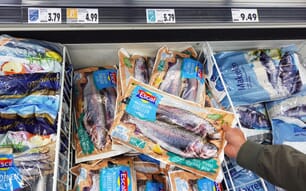The Environment Agency received a report on Sunday 5 August that a number of dead fish had been spotted in the Burniston Beck, between Cloughton and Scalby.
An officer visited the beck the same day and found around 60 dead fish, including trout and bullheads, within a 100m stretch at Rocks Lane, Burniston. Further inspection revealed hundreds more dead fish between Burniston Community Centre and Station Road in Scalby.
Other officers were called to the area and samples were taken in an attempt to locate how and where the pollution started. Since the initial report the Environment Agency has taken numerous calls about the incident, some of which suggest the pollution may have occurred on Saturday 4 August.
A biological survey was carried out to determine the extent of any ecological damage, which was not as bad as first thought.
The incident was confined to Burniston Beck, and although the estimated number of dead fish totalled nearly 3,000, including over 800 brown trout, live fish have since been seen swimming in the beck.
The survey also showed that the local invertebrates - beetles, shrimps and other creatures - appear to be unaffected. A survey to determine the number of fish remaining in the beck will be carried out soon.
Stephen Richardson said: It appears the pollution may have started in the Lindhead area and quickly travelled downstream, with a rapid impact on the watercourse. The results of our samples show no indication of what the pollutant was or what caused the fish to die, and the quality of the water is still very good.
This is a very serious incident that we believe has been caused by a deliberate act. We will not hesitate to prosecute should we find the person or persons responsible.
Members of the public are being asked If they have any information which may help the investigation to contact the Environment Agency on 0800 80 70 60.
Scarborough Pollution Kills 3,000 Fish
UK - The Environment Agency is appealing for information, following a serious pollution incident leading to the death of almost 3,000 fish in Scarborough.
by Lucy Towers



